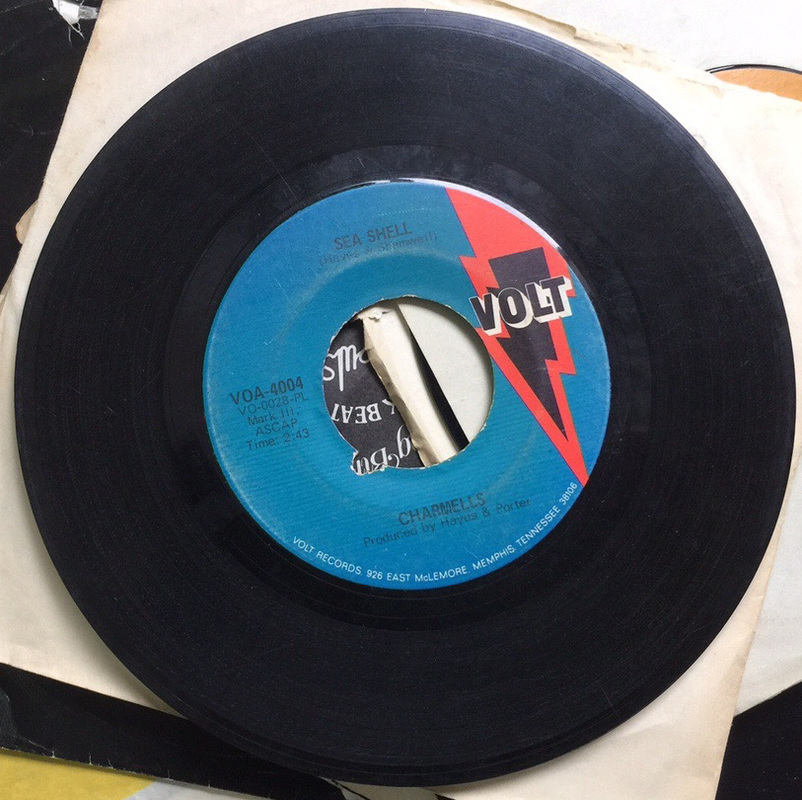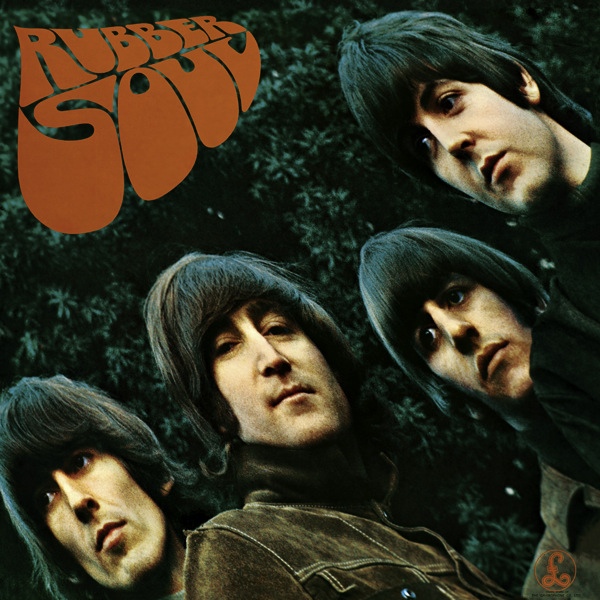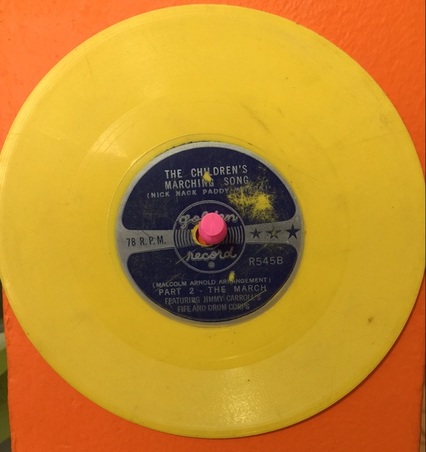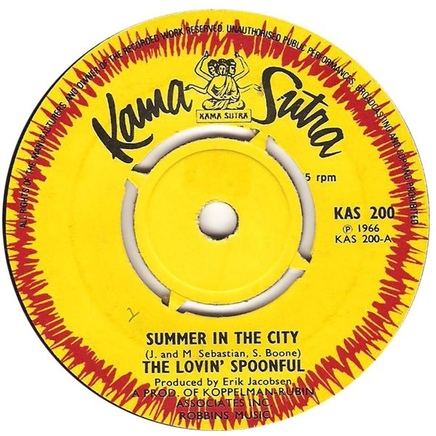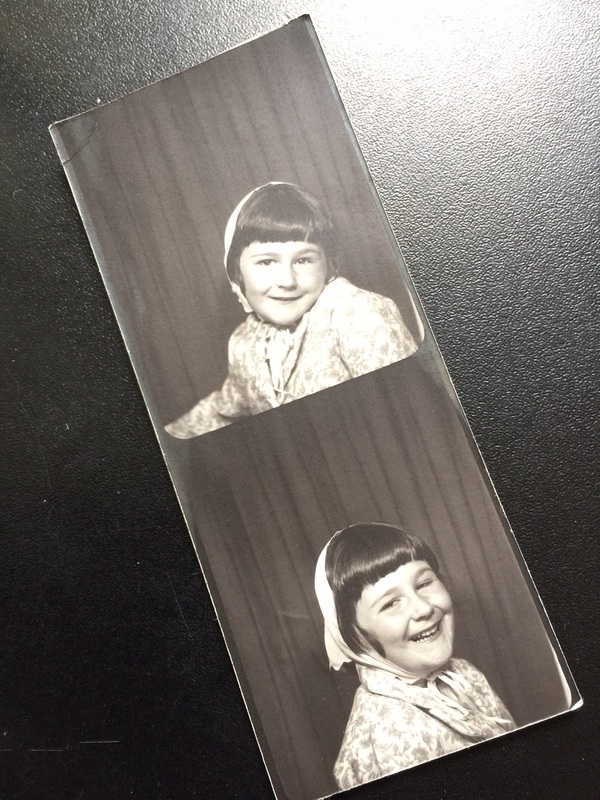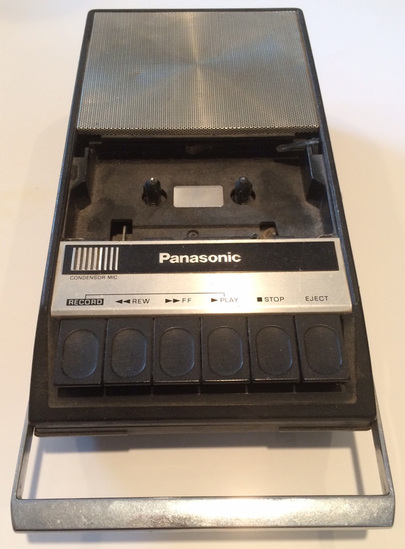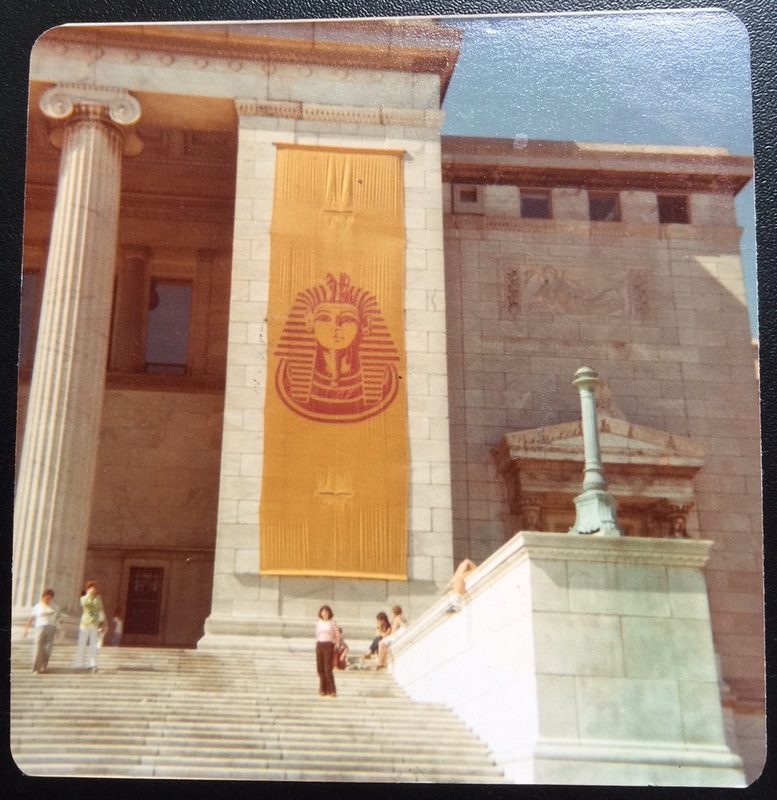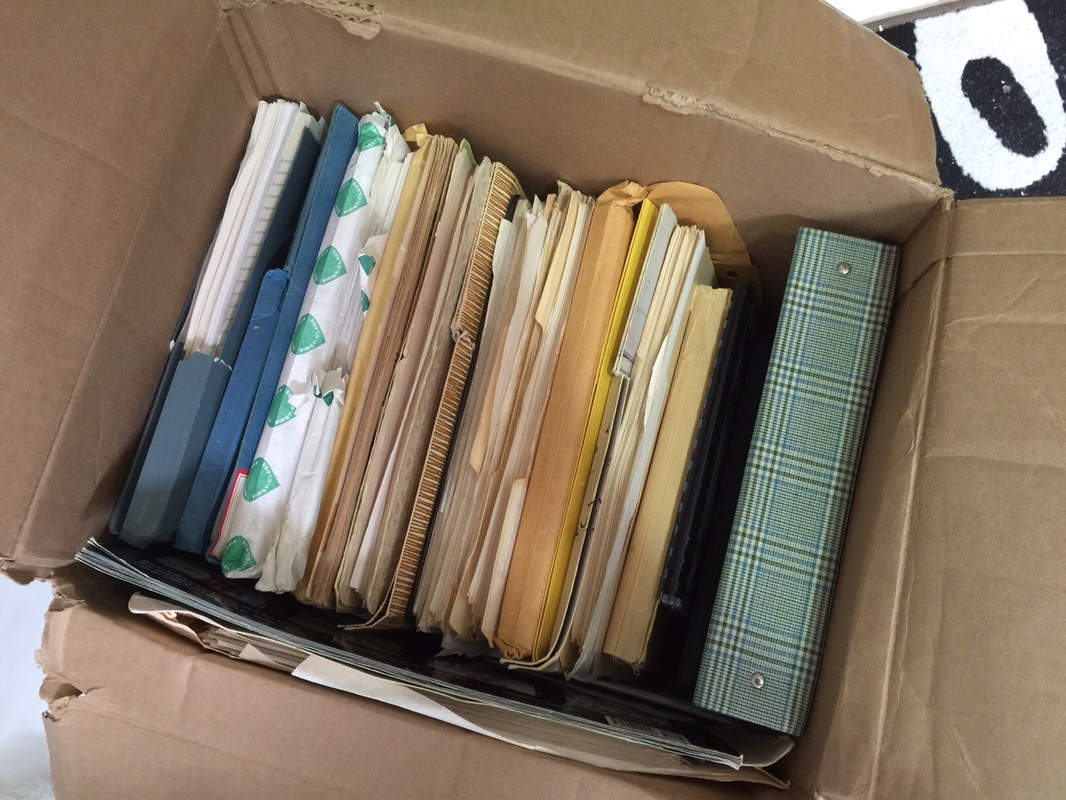Debbie Jaffe interview - early years
|
Hal McGee:
In the story of 60 Minutes Of Laughter I recounted how I met Debbie Jaffe in 1981 by responding to her classified ad. Jaffe was 20 years old and living with her mother in an apartment on West 38th Street in Indianapolis. We soon became good friends and began exploring underground art, literature and music together. Soon we started recording our audio experiments on a shoebox style cassette recorder that Debbie had owned since she was 14. Later we got involved in the small Indianapolis experimental scene. She created a small press dadazine called 60 Minutes Of Laughter in 1982-83. This led to our first tape release, 60 MOL, and our first recordings as a duo under the name Viscera. In 1985 we started the Cause And Effect Cassette Distribution Service and label, and started our solo projects, Master/Slave Relationship and Dog As Master. Recently I asked her about her early years, childhood, growing up, her early explorations of music, and what experiences shaped her as an artist. |
Hal McGee:
For those of us who might not yet be informed about your early years, childhood, growing up, adolescence, on into young adulthood, please give us an outline or timeline, including notable places, people, and events.
Debbie Jaffe:
My early years were far from boring, I can safely say that, but I sure didn't think of it as exciting either. In the first 18 years of my life I lived in 18 different places, mostly apartments.
My mom had severe mental problems, she was functional, but had terrible difficulty getting along with people, she had the worst inferiority complex. She was paranoid that everyone was out to get her, and consequently, caused me (and her 4 other kids, who by the time I came along, were grown up and gone, I was the youngest of 5) considerable misery.
My dad was a meek quiet man except when he got some PBRs in him which was mostly reserved for the weekends. He worked at a glass factory in town, making test tubes for the medical industry; it was miserable hot temperature work. When he drank he became verbally aggressive and violent towards my mom. He never abused me or anything like that, it was the dynamic between my mom and him that was tense - his beef was with her. Looking back I'm sure she provoked a lot of his anger - she was incredibly difficult - but still that's no excuse for violence.
I should mention, I always felt loved by my mom. She told me this ridiculous story that she prayed to Jesus to have another child (she was 44 at the time, which was “old” to be a new mother back then), and he made her pregnant (um, yeah, Jesus did that). So, yeah, I’m a special modern-day coming of Jesus, or something! HA!! The main point of this, is that she always made me feel special, and certainly wanted. I never had a doubt that I was wanted by her. She just lacked the relationship skills to make my life easy or happy, unfortunately.
I always loved music, I took solace in it. I remember when I was 5 years old I had a major crush on Ringo Starr and I loved hearing the Beatles, I even had a framed picture of him on my nightstand next to my bed. I thought he was SO cute! I always had a record player and records. When I was old enough and got a small bit of money here and there - like maybe 7 or 8 years old - I bought 7 inch singles, 10 for a dollar at a dime store! What a bargain! I still have some of those, like Charmells’ "Sea Shell". I played that song a thousand times.
The age of 5 would seem to have been pivotal. I got my first record player at the age of 5. It was a small red and white children's record player and I just loved listening to records. I had a set of yellow 7 inch records, one of which I still have.
For those of us who might not yet be informed about your early years, childhood, growing up, adolescence, on into young adulthood, please give us an outline or timeline, including notable places, people, and events.
Debbie Jaffe:
My early years were far from boring, I can safely say that, but I sure didn't think of it as exciting either. In the first 18 years of my life I lived in 18 different places, mostly apartments.
My mom had severe mental problems, she was functional, but had terrible difficulty getting along with people, she had the worst inferiority complex. She was paranoid that everyone was out to get her, and consequently, caused me (and her 4 other kids, who by the time I came along, were grown up and gone, I was the youngest of 5) considerable misery.
My dad was a meek quiet man except when he got some PBRs in him which was mostly reserved for the weekends. He worked at a glass factory in town, making test tubes for the medical industry; it was miserable hot temperature work. When he drank he became verbally aggressive and violent towards my mom. He never abused me or anything like that, it was the dynamic between my mom and him that was tense - his beef was with her. Looking back I'm sure she provoked a lot of his anger - she was incredibly difficult - but still that's no excuse for violence.
I should mention, I always felt loved by my mom. She told me this ridiculous story that she prayed to Jesus to have another child (she was 44 at the time, which was “old” to be a new mother back then), and he made her pregnant (um, yeah, Jesus did that). So, yeah, I’m a special modern-day coming of Jesus, or something! HA!! The main point of this, is that she always made me feel special, and certainly wanted. I never had a doubt that I was wanted by her. She just lacked the relationship skills to make my life easy or happy, unfortunately.
I always loved music, I took solace in it. I remember when I was 5 years old I had a major crush on Ringo Starr and I loved hearing the Beatles, I even had a framed picture of him on my nightstand next to my bed. I thought he was SO cute! I always had a record player and records. When I was old enough and got a small bit of money here and there - like maybe 7 or 8 years old - I bought 7 inch singles, 10 for a dollar at a dime store! What a bargain! I still have some of those, like Charmells’ "Sea Shell". I played that song a thousand times.
The age of 5 would seem to have been pivotal. I got my first record player at the age of 5. It was a small red and white children's record player and I just loved listening to records. I had a set of yellow 7 inch records, one of which I still have.
Right after that - maybe between 7 and 9 years old - I started buying "10 for a Dollar" 7-inch records at a dime store. Dusty Springfield, Frank Sinatra.... Back then genres were more blended than today. There were fewer of them too. There was Rock, Country, and "old fogy" music (Sinatra, Lawrence Welk).
I watched the Monkees and got into that - TV shows were a big place to find music you like, oddly enough. At least for a kid. Then the Partridge Family. I bought all their records, and the magazines - 16 and Tiger Beat - and the bubble gum cards which I had tons of, wish I still had them! David Cassidy was amazing to me back then.
Radio was an important source for music. When my mom didn't have the TV on, she had the radio on, and back then stations were not so genre-centric. They played rock, pop, some country, it was more mixed than radio is today. And of course there was no internet. I devoured everything I could listen to, studied it, learned and memorized songs and lyrics. Although I will say I had no clue about the meaning of a lot of the songs back then. I had a feeling they were singing about "naughty" stuff but didn't know what it was or meant.
I have a distinct memory when I was about 7 years old. My brother came to live with us (briefly, because he could not get along with my mom and he wound up leaving shortly thereafter), he was 11 years older than me so he was a senior in high school. He had albums by the Beatles, Beach Boys, Dylan, and others. I would pick out the gatefold album covers and position them propped up on the floor to make "forts" out of them. He would come home from school and get so mad at me! At the time I didn't understand, I knew I wasn't harming the records, but that's what he was afraid of. I remember the Rubber Soul album and specifically "Norwegian Wood" by the Beatles, I played that over and over. I would study album covers, and marvel at the weird graphics and what the heck it must all mean!
Another music memory is when I was maybe 12 or 13 and stayed up to watch a Midnight Special with David Bowie. It was WEIRD. I loved it!! He wore a body suit leotard with fake hands all over it which struck me as incredibly bizarre and great. Val - my brother Jim's wife - told my mom about it the next day and said she wondered if she should have allowed me to watch it, it was THAT weird. At least by those day's standards, it was pretty strange.
I really am knowledgeable about music, I know more than the average ...bear - er wait that's Yogi, ha ha ha. I know more than a lot of people, through my own passion for listening and learning.
At that point in my life I wanted - and had expected - to live in Indiana my entire life and was fine with it. However, I know now it was a supremely good thing that I was forced out of my home state because it opened my eyes to other possibilities, it made me rebellious and I consider that to be an incredibly good thing. I shudder to think what I'd be like if I had lived my entire life in Indiana. I also shudder to think that that's what I originally thought my life would be like. A normal life in Indiana. Or as normal as it could be, which wasn't very, family-wise anyway.
I was also sick with asthma, very sick, from the age of 1 1/2 years. I missed about half of every school year. Some of this illness I believe was reaction to horrible stress from my home/family environment. I remember being terrified of being taken away from my mom so I never spoke of what was happening to anyone, ever. Truant officers would visit me to get me to go to school, and I'd just say I was sick and hoped they leave. I wanted to tell them about the violence situation but dared not, which was unfortunate because the blame for not attending school was squarely on me, they just thought I was playing hooky. I felt that was unjust but couldn't tell them about my parents and that whole situation.
My parents divorced when I was 9. I was relieved but had no idea what was to come. At that point we spiraled into extreme poverty because my mom had a rough time getting and keeping jobs. Because of this instability, when I was almost 14 my mom agreed to let my older brother come and get us and move us to Iowa. I HATED this with my entire being. I hated Iowa. I wanted to stay in Indiana. My whole world was in Indiana. I decided I would stop speaking to people, I was so upset.
Whether I stayed in Indiana or not, perhaps I would have taken a more eccentric path either way, I've always been interested in anything creative, unique, bold. Moving out of Indiana, and away from my comfort zone, was traumatic, but it led me to discover Dada in the late 1970s which completely changed my life. I found the pressures of school to be very hard on me. Not the academic part, I was easily able to learn and enjoyed learning. It was the interaction with other kids that I could barely stand, it petrified me. So I stopped going, but was told I had to go because I wasn't 16 yet, so night school was offered to me and I took it. I spent a few evening hours at school getting A's and B's (open book tests, yay!!), then I had the rest of my time to explore what I was really interested in, which was art, music, ideas, creativity.
Once settled in Iowa, I took the bus and spent hours in the public library reading everything I could find related to these interests. I would check out vinyl records because I couldn't afford to buy a lot of them. I was so hungry for anything and everything I could find, anything I could learn. I routinely checked out as many books each day as I could carry back on the bus.
I heard Talking Heads on the radio, they played the entire More Songs About Building And Food album and I was STUNNED. Is this music? Is that singing? What is this? How can that be? Who would record such "songs"?? To me it sounded like alien music, these were aliens making this music, and I loved it. That led to Sex Pistols, Clash, Elvis Costello, Blondie; more Talking Heads including Fear of Music, which of course opens with "I Zimbra" with David Byrne singing a Hugo Ball poem. I read the nonsense lyrics and puzzled over them. WHY?? Who is Hugo Ball? Why did they choose that as the opening song on Side One? I realized there must be some big importance to Hugo Ball.
So back to the library I went to scour information about Hugo Ball. That led me to discover Dada. Dada blew my mind. You mean to tell me you can be nonsensical and weird and it's ART!!???? Or rather anti-art, a concept I was fascinated with. I loved that they rebelled against established norms, that they were against institutionalized art museums and everything those stood for. I was blown away and on a mental high from discovering this. I also realized NO ONE ever talked about Dada, or knew what it was. Why? It's like I was let in on a wonderful secret.
HM:
In addition to a generalized outline of those formative years, from 1961 to 1981, I want to know what motivated you to become interested in art, literature, alternative music, poetry, small press, etc. In William Davenport's interview with you in the Noise Nation film you talk about being so bored and frustrated with growing up in Middle America, and that you craved anything that was "weird" or "different".
DJ:
I really think anger and rebellion - what else!? Ha ha. Beyond that, simply a desire to be creative and to be surrounded by creativity, with a distinct preference that runs right into anything that is different than the norm, or weird. The weirder the better. I wasn't interested in seeing or hearing things that had already been done over and over. I decided my family sucked, the Midwest sucked, bland beige boring mainstream popular things sucked. And Des Moines - to me - was one big bland boring annoying stupid lack-of-any-kind-of-culture place.
Because as a child I felt like I was surrounded by idiots, yes I know this is arrogant, but I felt I was dragged around by stupid adults who didn't have a clue and suffered badly because of it. I remember - again at the age of 5 - that I KNEW I was smarter than the adults around me and I carried that notion to my adult life, it became a critical concept for me to embrace intelligence, embrace uniqueness, embrace weirdness because in weirdness comes new things, new ideas. Des Moines represented to me more stupidity, more banal mainstream crap, and I developed a solid dislike for all of that. To me "mainstream" anything was the enemy, it was bad, boring, and led people to live mediocre lives which they seemed more than content with. Mainstream meant lack of creativity. Lack of effort. Mediocrity. An entire discussion could be made about how the internet changed some of this, in some good ways, and not so good ways.
I lived in Iowa from the age of 14 to 19. When I turned 18 the welfare and all that came with it (food stamps, low rent housing, etc) ran out, so I was forced to get a job and support myself and my mom, something I deeply resented. I felt she should have supported me, not the other way around. Once I started making money, I began planning my escape out of Iowa. I considered the East Coast, because after all that's where CBGBs and all those amazing bands were, but New York City was too much for me, I knew that. So I convinced my mom to move back to Indiana with me. First we lived in Marion because my brother (the younger one who got mad at me for playing with his record albums) brought us there where he lived. I HATED Marion, it was BORING. I started searching. I found a music store that had Wurlitzer organ rentals in sound proof rooms (see next question). I found a free tabloid from Indianapolis called the Hot Potato and "Letters to the Editor".... more on this later...
I watched the Monkees and got into that - TV shows were a big place to find music you like, oddly enough. At least for a kid. Then the Partridge Family. I bought all their records, and the magazines - 16 and Tiger Beat - and the bubble gum cards which I had tons of, wish I still had them! David Cassidy was amazing to me back then.
Radio was an important source for music. When my mom didn't have the TV on, she had the radio on, and back then stations were not so genre-centric. They played rock, pop, some country, it was more mixed than radio is today. And of course there was no internet. I devoured everything I could listen to, studied it, learned and memorized songs and lyrics. Although I will say I had no clue about the meaning of a lot of the songs back then. I had a feeling they were singing about "naughty" stuff but didn't know what it was or meant.
I have a distinct memory when I was about 7 years old. My brother came to live with us (briefly, because he could not get along with my mom and he wound up leaving shortly thereafter), he was 11 years older than me so he was a senior in high school. He had albums by the Beatles, Beach Boys, Dylan, and others. I would pick out the gatefold album covers and position them propped up on the floor to make "forts" out of them. He would come home from school and get so mad at me! At the time I didn't understand, I knew I wasn't harming the records, but that's what he was afraid of. I remember the Rubber Soul album and specifically "Norwegian Wood" by the Beatles, I played that over and over. I would study album covers, and marvel at the weird graphics and what the heck it must all mean!
Another music memory is when I was maybe 12 or 13 and stayed up to watch a Midnight Special with David Bowie. It was WEIRD. I loved it!! He wore a body suit leotard with fake hands all over it which struck me as incredibly bizarre and great. Val - my brother Jim's wife - told my mom about it the next day and said she wondered if she should have allowed me to watch it, it was THAT weird. At least by those day's standards, it was pretty strange.
I really am knowledgeable about music, I know more than the average ...bear - er wait that's Yogi, ha ha ha. I know more than a lot of people, through my own passion for listening and learning.
At that point in my life I wanted - and had expected - to live in Indiana my entire life and was fine with it. However, I know now it was a supremely good thing that I was forced out of my home state because it opened my eyes to other possibilities, it made me rebellious and I consider that to be an incredibly good thing. I shudder to think what I'd be like if I had lived my entire life in Indiana. I also shudder to think that that's what I originally thought my life would be like. A normal life in Indiana. Or as normal as it could be, which wasn't very, family-wise anyway.
I was also sick with asthma, very sick, from the age of 1 1/2 years. I missed about half of every school year. Some of this illness I believe was reaction to horrible stress from my home/family environment. I remember being terrified of being taken away from my mom so I never spoke of what was happening to anyone, ever. Truant officers would visit me to get me to go to school, and I'd just say I was sick and hoped they leave. I wanted to tell them about the violence situation but dared not, which was unfortunate because the blame for not attending school was squarely on me, they just thought I was playing hooky. I felt that was unjust but couldn't tell them about my parents and that whole situation.
My parents divorced when I was 9. I was relieved but had no idea what was to come. At that point we spiraled into extreme poverty because my mom had a rough time getting and keeping jobs. Because of this instability, when I was almost 14 my mom agreed to let my older brother come and get us and move us to Iowa. I HATED this with my entire being. I hated Iowa. I wanted to stay in Indiana. My whole world was in Indiana. I decided I would stop speaking to people, I was so upset.
Whether I stayed in Indiana or not, perhaps I would have taken a more eccentric path either way, I've always been interested in anything creative, unique, bold. Moving out of Indiana, and away from my comfort zone, was traumatic, but it led me to discover Dada in the late 1970s which completely changed my life. I found the pressures of school to be very hard on me. Not the academic part, I was easily able to learn and enjoyed learning. It was the interaction with other kids that I could barely stand, it petrified me. So I stopped going, but was told I had to go because I wasn't 16 yet, so night school was offered to me and I took it. I spent a few evening hours at school getting A's and B's (open book tests, yay!!), then I had the rest of my time to explore what I was really interested in, which was art, music, ideas, creativity.
Once settled in Iowa, I took the bus and spent hours in the public library reading everything I could find related to these interests. I would check out vinyl records because I couldn't afford to buy a lot of them. I was so hungry for anything and everything I could find, anything I could learn. I routinely checked out as many books each day as I could carry back on the bus.
I heard Talking Heads on the radio, they played the entire More Songs About Building And Food album and I was STUNNED. Is this music? Is that singing? What is this? How can that be? Who would record such "songs"?? To me it sounded like alien music, these were aliens making this music, and I loved it. That led to Sex Pistols, Clash, Elvis Costello, Blondie; more Talking Heads including Fear of Music, which of course opens with "I Zimbra" with David Byrne singing a Hugo Ball poem. I read the nonsense lyrics and puzzled over them. WHY?? Who is Hugo Ball? Why did they choose that as the opening song on Side One? I realized there must be some big importance to Hugo Ball.
So back to the library I went to scour information about Hugo Ball. That led me to discover Dada. Dada blew my mind. You mean to tell me you can be nonsensical and weird and it's ART!!???? Or rather anti-art, a concept I was fascinated with. I loved that they rebelled against established norms, that they were against institutionalized art museums and everything those stood for. I was blown away and on a mental high from discovering this. I also realized NO ONE ever talked about Dada, or knew what it was. Why? It's like I was let in on a wonderful secret.
HM:
In addition to a generalized outline of those formative years, from 1961 to 1981, I want to know what motivated you to become interested in art, literature, alternative music, poetry, small press, etc. In William Davenport's interview with you in the Noise Nation film you talk about being so bored and frustrated with growing up in Middle America, and that you craved anything that was "weird" or "different".
DJ:
I really think anger and rebellion - what else!? Ha ha. Beyond that, simply a desire to be creative and to be surrounded by creativity, with a distinct preference that runs right into anything that is different than the norm, or weird. The weirder the better. I wasn't interested in seeing or hearing things that had already been done over and over. I decided my family sucked, the Midwest sucked, bland beige boring mainstream popular things sucked. And Des Moines - to me - was one big bland boring annoying stupid lack-of-any-kind-of-culture place.
Because as a child I felt like I was surrounded by idiots, yes I know this is arrogant, but I felt I was dragged around by stupid adults who didn't have a clue and suffered badly because of it. I remember - again at the age of 5 - that I KNEW I was smarter than the adults around me and I carried that notion to my adult life, it became a critical concept for me to embrace intelligence, embrace uniqueness, embrace weirdness because in weirdness comes new things, new ideas. Des Moines represented to me more stupidity, more banal mainstream crap, and I developed a solid dislike for all of that. To me "mainstream" anything was the enemy, it was bad, boring, and led people to live mediocre lives which they seemed more than content with. Mainstream meant lack of creativity. Lack of effort. Mediocrity. An entire discussion could be made about how the internet changed some of this, in some good ways, and not so good ways.
I lived in Iowa from the age of 14 to 19. When I turned 18 the welfare and all that came with it (food stamps, low rent housing, etc) ran out, so I was forced to get a job and support myself and my mom, something I deeply resented. I felt she should have supported me, not the other way around. Once I started making money, I began planning my escape out of Iowa. I considered the East Coast, because after all that's where CBGBs and all those amazing bands were, but New York City was too much for me, I knew that. So I convinced my mom to move back to Indiana with me. First we lived in Marion because my brother (the younger one who got mad at me for playing with his record albums) brought us there where he lived. I HATED Marion, it was BORING. I started searching. I found a music store that had Wurlitzer organ rentals in sound proof rooms (see next question). I found a free tabloid from Indianapolis called the Hot Potato and "Letters to the Editor".... more on this later...
HM:
What was your earliest musical or sound art experience? Describe your formal musical training. You played clarinet and keyboards when I met you. I seem to recall that you could sight-read music. On 60 Minutes Of Laughter there are recorded snippets of some of these early musical adventures - "Kurtz Kapers" and "Wurlitzer Intermission".
DJ:
The red and white record player was the first, when I was about 5 years old. I had kiddie records at that point but was aware of the Beatles and whatever was played on the radio, and on Ed Sulllivan at the time. I loved music. My mom had Frank Sinatra records and though now I recognize how great he was in some ways, it was "old fogy" music to me back then. My dad was into twangy country music (Porter Waggoner, Conway Twitty, Hee Haw, etc) and I hate that because I associated it with hick hillbilly Indiana which I interpreted as not so intelligent. Now, I do see the genius of Buck Owens and Hank Williams and music like that.
Yes, I was "trained" by the junior high school system so I can read music. I played clarinet and then bass clarinet which I really loved because I was only 1 of 3 in the band. Whereas there were 30 clarinet players. And most of all, the bass clarinet sounds great and looks weird!
The "Wurlitzer Intermission" was recorded when I returned to Marion Indiana from having lived in Des Moines for 5 years. I was so bored and I found out the local small town music instrument store offered the use of their Wurlitzer organ in a sound-proof setting in the basement, so I was there experimenting. It had a built-in cassette recorder so I got a blank and recorded my doodlings. That might be the only recording of it, the original tape is missing, it became the "Wurlitzer Intermission" on 60 MOL.
What was your earliest musical or sound art experience? Describe your formal musical training. You played clarinet and keyboards when I met you. I seem to recall that you could sight-read music. On 60 Minutes Of Laughter there are recorded snippets of some of these early musical adventures - "Kurtz Kapers" and "Wurlitzer Intermission".
DJ:
The red and white record player was the first, when I was about 5 years old. I had kiddie records at that point but was aware of the Beatles and whatever was played on the radio, and on Ed Sulllivan at the time. I loved music. My mom had Frank Sinatra records and though now I recognize how great he was in some ways, it was "old fogy" music to me back then. My dad was into twangy country music (Porter Waggoner, Conway Twitty, Hee Haw, etc) and I hate that because I associated it with hick hillbilly Indiana which I interpreted as not so intelligent. Now, I do see the genius of Buck Owens and Hank Williams and music like that.
Yes, I was "trained" by the junior high school system so I can read music. I played clarinet and then bass clarinet which I really loved because I was only 1 of 3 in the band. Whereas there were 30 clarinet players. And most of all, the bass clarinet sounds great and looks weird!
The "Wurlitzer Intermission" was recorded when I returned to Marion Indiana from having lived in Des Moines for 5 years. I was so bored and I found out the local small town music instrument store offered the use of their Wurlitzer organ in a sound-proof setting in the basement, so I was there experimenting. It had a built-in cassette recorder so I got a blank and recorded my doodlings. That might be the only recording of it, the original tape is missing, it became the "Wurlitzer Intermission" on 60 MOL.
HM:
On 60 MOL there are also recorded bits that you captured on your cassette recorder of family discussions, glimpses into daily life of times past. In the collection of Early Jaffe & McGee Tapes there are numerous tapes on which you had recorded various things, seemingly over the course of several years. There are a lot of scratch-outs on the tape labels, and from time to time previous recordings peek through in the middle of newer recordings. I get the idea that that cassette recorder was your best friend! Tell me about your beloved Panasonic RQ-309AS cassette recorder!
DJ:
I never looked at it like that before, but yes, I did use it a lot once my dad bought it for me in Fort Wayne when I was 14. When he first bought it for me, I was SO shy. It had a microphone and he'd insist we talk and he'd record it. That was the first time I heard my own voice, and was shocked! That can't be me!!
I instructed my mom how to record with it, and she recorded me playing 2 different concerts in my junior high school band. I still have both of those cassettes and they have been transferred to digital as a back up. Having the ability to record was a personal freedom, it wasn't something I did a lot back then, but I realized the potential. I could CREATE with it! I just had to get over my shyness...
As for the family discussions, my brother had a minister from a local church come to his house to see if he could help them reduce the chaos (I believe that's the word he used) that had become overwhelming in his and his wife's lives at the time. I found this to be a questionable idea considering my brother wasn't religious, but hey worth a try I thought. So I recorded it. Those snippets were the best parts. I don't think I have the original tape of that, so again what is on 60 MOL is the full extent of what is still in existence.
There was all kinds of turmoil when my mom was around, and in my brother's life too, so I learned to use some of that as material. They were constantly fighting. I wish I would have recorded more of it, but I was scared and shy.
On 60 MOL there are also recorded bits that you captured on your cassette recorder of family discussions, glimpses into daily life of times past. In the collection of Early Jaffe & McGee Tapes there are numerous tapes on which you had recorded various things, seemingly over the course of several years. There are a lot of scratch-outs on the tape labels, and from time to time previous recordings peek through in the middle of newer recordings. I get the idea that that cassette recorder was your best friend! Tell me about your beloved Panasonic RQ-309AS cassette recorder!
DJ:
I never looked at it like that before, but yes, I did use it a lot once my dad bought it for me in Fort Wayne when I was 14. When he first bought it for me, I was SO shy. It had a microphone and he'd insist we talk and he'd record it. That was the first time I heard my own voice, and was shocked! That can't be me!!
I instructed my mom how to record with it, and she recorded me playing 2 different concerts in my junior high school band. I still have both of those cassettes and they have been transferred to digital as a back up. Having the ability to record was a personal freedom, it wasn't something I did a lot back then, but I realized the potential. I could CREATE with it! I just had to get over my shyness...
As for the family discussions, my brother had a minister from a local church come to his house to see if he could help them reduce the chaos (I believe that's the word he used) that had become overwhelming in his and his wife's lives at the time. I found this to be a questionable idea considering my brother wasn't religious, but hey worth a try I thought. So I recorded it. Those snippets were the best parts. I don't think I have the original tape of that, so again what is on 60 MOL is the full extent of what is still in existence.
There was all kinds of turmoil when my mom was around, and in my brother's life too, so I learned to use some of that as material. They were constantly fighting. I wish I would have recorded more of it, but I was scared and shy.
HM:
Also I want you talk about the numerous folders bulging full of your poetic and prose writings that you showed me when we first met. We used lots of bits and pieces from those folders in our recording sessions. I selected a poem that looked promising and recited or declaimed it while you created an instrumental setting. When did you first start composing poems and other bits of creative writing? Over the course of how many years were those writings accumulated?
DJ:
I started writing when I was a bored frustrated lonely teen in Des Moines. I was mostly a shut-in after I was kicked out of 10th grade and decided to go to night school instead. I'd get a month's worth of lessons done in a week, and no social pressures, I worked at my own pace, it was great. Anyway that left me with daytimes free to do whatever, so I either went to the library and read all day, or I'd write. I wrote and wrote. I went through the box recently and was surprised to find I can't remember writing most of it. It's a blank. I wrote with a frenzy.
I wrote novels, poems, screenplays, stream-of-consciousness which I LOVED doing. I'd close my eyes halfway and tune out and write whatever words came to my mind. I still have those manuscripts. I really should type them up and post them on my website, for kicks.
When you suggested using my poems as lyrics for Viscera songs I was happy to have a use for some of it finally. I used to send my work out, only to get rejection slips of course. I sent something to a guy named Ric Soos who had a little literary zine called The Occasional Review. I sent something to him and while I don't think he accepted it, he suggested I write a posthumous interview with Tristan Tzara. I did and he published it. So there I was 18 or 19 and published! Honestly it didn't really seem that big in some ways, but I was happy about it. I did another posthumous interview with Gertrude Stein and he published that too. That gave me my first taste of wanting to do my own projects, and finding like-minded people. I knew I had to get out of Iowa!
So back to Indiana I went. Marion briefly (like a few months), then Indianapolis, where I met you Hal, and the cast of misfit characters, Rick Karcasheff, David Mattingly, etc.
HM:
More on all of that, later!
Also I want you talk about the numerous folders bulging full of your poetic and prose writings that you showed me when we first met. We used lots of bits and pieces from those folders in our recording sessions. I selected a poem that looked promising and recited or declaimed it while you created an instrumental setting. When did you first start composing poems and other bits of creative writing? Over the course of how many years were those writings accumulated?
DJ:
I started writing when I was a bored frustrated lonely teen in Des Moines. I was mostly a shut-in after I was kicked out of 10th grade and decided to go to night school instead. I'd get a month's worth of lessons done in a week, and no social pressures, I worked at my own pace, it was great. Anyway that left me with daytimes free to do whatever, so I either went to the library and read all day, or I'd write. I wrote and wrote. I went through the box recently and was surprised to find I can't remember writing most of it. It's a blank. I wrote with a frenzy.
I wrote novels, poems, screenplays, stream-of-consciousness which I LOVED doing. I'd close my eyes halfway and tune out and write whatever words came to my mind. I still have those manuscripts. I really should type them up and post them on my website, for kicks.
When you suggested using my poems as lyrics for Viscera songs I was happy to have a use for some of it finally. I used to send my work out, only to get rejection slips of course. I sent something to a guy named Ric Soos who had a little literary zine called The Occasional Review. I sent something to him and while I don't think he accepted it, he suggested I write a posthumous interview with Tristan Tzara. I did and he published it. So there I was 18 or 19 and published! Honestly it didn't really seem that big in some ways, but I was happy about it. I did another posthumous interview with Gertrude Stein and he published that too. That gave me my first taste of wanting to do my own projects, and finding like-minded people. I knew I had to get out of Iowa!
So back to Indiana I went. Marion briefly (like a few months), then Indianapolis, where I met you Hal, and the cast of misfit characters, Rick Karcasheff, David Mattingly, etc.
HM:
More on all of that, later!

